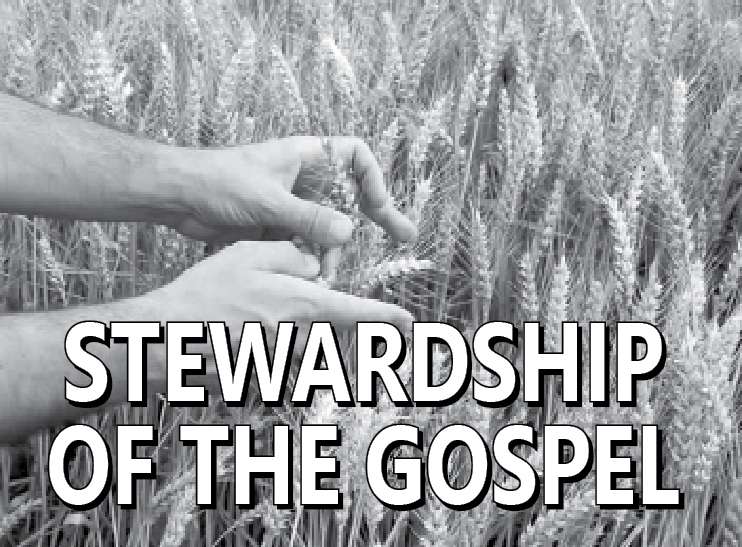
The Lord’s Supper: A Fellowship of Thanksgiving
Pr. Thomas Cherian
I. INTRODUCTION
Some years ago, a young man shared with me about his irrepressible craving to grab a piece of bread from the plate that a pastor was carrying during the distribution of the elements of the Lord’s Supper. He was so eager to partake that he underwent water baptism without even consulting anyone to understand the meaning of either baptism or the Lord’s Supper.
What does the Lord’s Supper actually mean to us? Is it just a kind of ritual where one maintains reverence for a few minutes or does it impart a contemplative and positive effect on our being as a whole? This article will focus basically on the various themes connected to the phrase “the Lord’s Supper” and the reasons for re-enacting the Lord’s Supper that Jesus shared with His disciples many years ago.
II. Lord’s Supper and the Various Terms Used in the New Testament
The phrase - Lord's Supper - is used directly in 1 Corinthians 11:20 to describe the ceremony of remembrance and is used commonly in most denominations. It is also known as the Last Supper, as it is related to a historical event, which took place the day before Jesus' crucifixion at which he instituted the practice of the Lord's Supper. Various other terms are used in the Bible namely, Communion (I Corinthians 10:16), Eucharist (Matthew 26:27, Mark 14:23, Luke 22:19, 1 Corinthians 11:24), the Breaking of Bread (Acts 2:42, 46; 20:7), and the Table of the Lord (1 Corinthians 10:21).
III. Lord’s Supper and Eucharist
Although the term Holy Communion is used more often in protestant churches, the term Eucharist will be the focus of discussion in this article. The word ‘Eucharist,’ from Greek eucharisteō, (which means ‘to be or feel thankful or grateful)’, is taken from the account where Jesus "gave thanks" before presenting to his disciples the Bread and the Cup. The same word is used for ‘thanks’ throughout the Greek New Testament. Luke 22 is the story of the Last Supper, where Jesus broke Bread and shared the Cup with His disciples before His crucifixion. Several times throughout the passage it reads that He “gave thanks” (eucharisteo), as the symbolic body and blood of Christ was passed on.
IV. Lord’s Supper as an Act of Thanksgiving
Partaking of the Lord’s Supper is the time taken as an act of pure thanksgiving. There are two things to be noted. Firstly, Jesus thanked God for the very Bread that symbolized His imminent death. He thanked God for the Cup that represented His own blood. These are not easy things to thank God for because of the enormous pain He was about to endure within the next few hours. Secondly, we as the body of Christ are also expected to give thanks, while partaking from the Table. We thank God for Jesus, who followed through with the plan to save humanity. Jesus is thanking God for all that will result from His sacrifice - the salvation of mankind. One has to thank God for various reasons discussed below besides the greatest love and sacrifice of Jesus Christ. The following themes would enable us to understand the deeper meaning of the Lord’s Supper, which will eventually lead us in thanking God at all times.
V. The Themes that bring out the component of Thanksgiving in the Lord’s Supper
a) Fulfillment of the Promise:
Before man was cast out of the Garden of Eden, the Almighty God made a promise of redemption(Gen. 3:15). This long awaited promise of crushing of the head of the serpent by the seed of the woman was fulfilled on the Cross of Calvary. A prominent Pastor and a theologian of the 20th century, Dietrich Bonhoeffer once said, “God does not give us everything we want, but He does fulfill His promises, leading us along the best and straightest paths to Himself.”The symbolic reminder of the sacrifice in the Lord’s Supper should lead a believer to thanksgiving, because the first ever promise made to the mankind was fulfilled. In other words, it reminds us about a God, who keeps His promises.
b) Sharing of common Memory:
By sharing the Lord’s Supper together, we enact the sharing of a common memory. This was connected to the life experience of Hebrew slaves in the Exodus redemption (Ex 12:25-27). They celebrated their great redemption from the bondage of Egyptian slavery because of the slaying of Passover lambs. The New Testament establishes a relationship between this prototypical Passover lamb and the consummate Passover Lamb, Jesus Christ (1 Corinthians 5:7).
The Lord’s Supper represents the spiritual experience for all who believe in the sacrificial death of Jesus Christ. It is by believing in the Lord Jesus one gains confidence to walk scot-free from the clutches of sin and the evil forces of darkness (Col. 1:12-14). This way both Jews and gentiles are reminded of their deliverance whether physical or spiritual and are obliged to give thanks to God for the redemption experienced.
c) The idea of Kenosis:
In Christian theology, kenosis (emptiness) is the 'self-emptying' of one's own will and becoming entirely receptive to God's divine will. The Almighty God took the form of a man and totally emptied Himself (Phil. 2:7); the word ekénōsen used here also means to ‘make Himself nothing.’The emptying process by Jesus was required so as to fill us with His joy, peace and life. How can one remain ungrateful for this great act on the cross while partaking of the Lord’s Table? To empty, one has to give up comforts. As a mark of gratitude to our Lord, we can also follow the footsteps of Christ, by giving up at least some of our comforts, to reach out to the lost in the society. Someone once made an interesting prayer “Lord empty me of Me so that I can be filled with You.”
d) The Vicarious death of Christ:
The word ‘vicarious’ means an action performed or suffered in place of another. When we participate in the Lord’s Supper, we remember the vicarious death of Christ for us. Prophet Isaiah presents beautifully in Isaiah 53:4-5, “Surely He took up our pain and bore our suffering, yet we considered Him punished by God, stricken by Him, and afflicted. But He was pierced for our transgressions, He was crushed for our iniquities; the punishment that brought us peace was on Him, and by His wounds we are healed.” How can one ever take things for granted and remain ungrateful while partaking of the Lord’s Supper?
e) Paying off the unimaginable Debt of Sin:
The author of Hebrews wrote: …without the shedding of blood there is no forgiveness of Sin (Heb. 9:22). No human effort is capable of paying off the debt of human Sin. The result of non-payment of the price for the Sin is death. The Lord’s Supper reminds believers that the heavy price for their sins are paid on the cross and they are thus able to enjoy the free gift of salvation. Mathew Henry pens it beautifully. He writes, “Come, and see the victories of the cross. Christ’s wounds are thy healings, His agonies thy repose, His conflicts thy conquests, His groans thy songs, His pains thine ease, His shame thy glory, His death thy life, His sufferings thy salvation.” The very realization of what Jesus did for us on the cross should lead us into a time of praise and thanksgiving.
f) Renewal of Relationship:
The Lord’s Supper provides both vertical and horizontal renewal of our relationship. By partaking of the Lord’s Supper, believers publically renew their commitment to Christ and affirm their faith in Him. Since it provides spiritual nourishment and refreshment, it is fitting to refer to it in terms of renewal. Yet the renewal is not just towards Christ. The Lord’s Supper also provides renewal for our commitment to the body of Christ as well. Both 1 Corinthian 10:16-17 and 11:29 indicate that there is a connection between the Lord’s Supper and church unity. In other words by partaking of the Lord’s Supper one is reminded of the vertical relationship with Christ as well as the horizontal relationship with each other. We should be thankful to God for breaking the walls that separated humanity from each other based on caste, creed, colour and race (cf. Col. 1:20-22; 3:10-12).
g) The sense of Belonging to God:
Once slaves to Satan and Sin, the sacrifice on the cross gave us the privilege to be called the children of God and it also broke down the wall of hostility that existed between Jews and Gentiles. We can now share the symbols of friendship, fellowship, commitment and love for one another in Jesus Christ. William Barclay said, "The giving of and the sharing of the meal is marked by friendship.”Those who sit at the meal are committed to each other, committed to their host and their host is committed to them. There is now a sense of belongingness to God; therefore, we should be deeply thankful to God for the same at all times.
h) The sense of Intimacy:
More than just belonging to God, there is also a sense of intimacy while we partake from the Table; we can see this especially in the statement Jesus makes when he took the bread and broke it saying, “This is my body (Matt.26: 26 and 27).” The use of the personal pronoun ‘my’ suggests the language of intimacy. Jesus took two of the most common elements in Palestinian life, and sanctified them as symbols of His relationship to those He loved. For the Jews, eating a meal without bread was no meal at all. Christ was keeping up with Jewish custom. B. John Burkhart, in his book, ‘Worship’ writes, "It was customary for the head of the house, who is the host, to begin with a meal, after blessing the bread by tearing the bread into pieces and sharing it." Jesus, being the Head of the Church, is also the host who blesses the Bread and the Cup and distributes it to His disciples. Anyone willing to host a group in their home for thanksgiving deserves honor. So let us approach God with gratitude for the sense of intimacy, and regard our host with proper praise.
i) The Time of receiving Wholeness:
Another significant thing that happens at the time of Lord’s Supper is the holistic healing. For as often as you eat this bread and drink this cup, you proclaim the Lord’s death until He comes (1 Cor. 11:26). At the Table, we are declaring the accomplishment at Calvary. When Jesus says, “This is my body broken for you,” He is saying, ‘I was broken so that you can be made whole. I suffered so you can be healed.’Isaiah 53:5 says “..…by His wounds we are healed.” The regular celebration of the Table is that we come with thanksgiving to receive the strength, grace and power of God. At this Table, there is wholeness available for every part of our being. This wholeness gives us spiritual contentment as well.
j) Eschatological anticipation of the Future Feast:
Prophet Isaiah indicated that there would one day be an eschatological banquet feast (Isa. 25:6-8). When Jesus instituted the Lord’s Supper, He reminded His disciples of this idea by saying, “For I tell you I will not eat of it until it is fulfilled in the Kingdom of God… I tell you that from now on I will not drink of the fruit of the vine until the kingdom of God comes (Luke 22:16, 18).” Paul built on this theme when he wrote: “For as often as you eat this Bread and drink the Cup, you proclaim the Lord’s death until He comes”(1 Cor. 11:26). Finally, at the end of the age, we are told that believers will be encouraged to “rejoice and exult and give Him the glory, for the marriage of the Lamb has come (Rev. 19:7). ”
When we fellowship at the Lord’s Table, we prophetically proclaim it and experience a picture of what will happen one day, when Jesus returns. Therefore, one should always be thankfully rejoice for the great feast that is yet to come.
VI. Conclusion
The Lord’s Supper is not just a sacrament or a religious ceremony of the Christian Church. It also produces practical implications. Its effect is worth noting and should lead every participant into true worship.
Every believer should move from superficial moments of recalling, into the depths of fellowship of true thanksgiving (Eucharist) with our Saviour. One should be overflowing with the glory, grace, goodness and grandeur of Jesus so that Christ may capture and ravish our heart with His person. The above discussed reminders and reflections on the Lord’s Supper will help a believer grow into a state of constant thankfulness and continuous worship of our Lord for what He has done for us. As Paul states that we have to realize that the will of God for us is to continually, have a life of thanksgiving (1 Thess. 5.18). It should become our lifestyle. Such persistent and constant feeling and celebration of the Lord’s Supper that produces a life of thanksgiving will definitely swallow up all the negativities like frustration, anxiety, issues, distrust, confusion, criticisms and grumbling that are increasingly found in the churches today. Such a life of thanksgiving is what is expected in these last days and will definitely please our Lord who instituted the Lord’s Supper.
History has captured this important emphasis in referring to the Lord's Supper as the Eucharist, a term based on the Greek word for ‘giving thanks’. Our thanks, however, is based upon the completed work of Jesus Christ for us. We have been made whole and therefore are grateful. The Lord's Supper speaks graphically of the good news of salvation, the forgiveness from sin, for which we give thanks. So, it is definitely a Fellowship of Thanksgiving. May the celebration of Lord’s Supper continue to produce a life of ceaseless thanksgiving. May our life take on the fragrance of His nature in an attitude of constant thankfulness. And may our day be brimming with praise and adoration for the love and sacrifice poured out upon the Cross, on our behalf.








